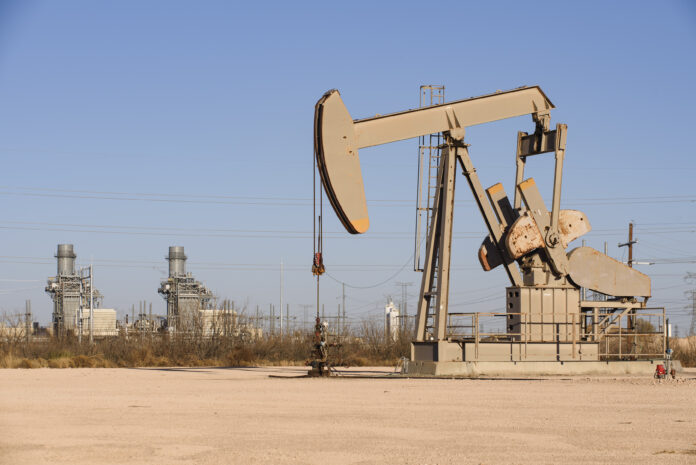
As mercurial and unpredictable as it is, the energy industry offers a few probabilities as experts consider the business year of 2024.
Odessa oilman Kirk Edwards and Waco economist Ray Perryman say the prospects for good oil prices are much better than they are for a return to healthy natural gas prices.
They also say Saudi Arabia will again be a major player and that the wars in Ukraine and Israel will increase tensions.
“In my opinion we have the tale of two different pricing products, oil versus natural gas,” Edwards said. “Clearly the natural gas price outlook is not very favorable due to the very slow start of winter coming on in late 2023 into 2024 and due to the very high amount of natural gas being produced mainly because of the enormous amount of oil being produced in conjunction with the natural gas.
“Luckily the exporting of our natural gas through LNG tankers to Europe and Asia will be the driver on keeping prices from falling much further as those countries desperately need our LNG ahead,” he said. “But until we see gas storage figures get to much lower levels or near the five-year averages, we will be stuck in the $2-$3 per thousand cubic feet range this year.”
Edwards said oil will be volatile because American shale producers have efficiently brought in more wells with higher production each year, including 2023.
“Storm clouds are on the horizon for oil as the Saudis will be willing to cut only so far before flooding the markets as they have done in the past to teach everyone a lesson,” he said. “I hope that does not happen again, but it has only been three years since they last decimated the oil price and our West Texas economy by doing just that before the pandemic hit.
“The war in Ukraine and the Middle East war between Hamas and Israel will continue to add tension, too. So the price of oil can, and probably will, swing wildly this year depending upon how these scenarios play out.”
Perryman said oil and gas prices will fluctuate throughout the year with geopolitical tensions, the actions of OPEC-Plus, weather events and other disturbances in the market.
“With the ongoing situation in Russia and Ukraine, the Israel-Hamas conflict, the dispute between Venezuela and Guyana and now the threats in the Red Sea shipping corridor, the prospects for temporary disruptions in either direction are high,” he said.
“The recent disruptions in the Red Sea affect about 12 percent of global shipments and they could well affect supply chains including oil and LNG. The effects should be most strongly felt in Europe and Asia, but the U.S. is certainly not immune.”
But Perryman said a relatively stable global economy supporting demand should prevent prolonged and major spikes or dips.
“We expect global growth in gross domestic product at about 2.7 percent this year with China rebounding modestly,” he said. “Even as we confront significant climate problems, the long-term demand for fuels indicates that an all-of-the-above response will be needed with renewable sources supplemented by conventional fuels for the foreseeable future.
“Given the lower-carbon profile of Permian Basin oil, I think the region is well positioned for decades. Clearly it will be increasingly important that oil and natural gas are produced in environmentally responsible ways to the greatest extent possible. I think we can anticipate calls for additional reductions in flaring, for example, in the years to come.”
Perryman said the war in Ukraine and the Israel-Hamas war demonstrate the importance of energy security.
“It is crucial that the U.S. and its allies develop and maintain the capacity to produce needed fuels even as global conflicts arise,” he said. “This need encompasses not only U.S. markets but also the expansion of the LNG capacity in Europe to decrease dependence on Russia.
“The presidential election will doubtless increase uncertainty, but the most extreme scenarios of the good or bad associated with a win by either candidate will almost certainly be overstated as they always are. I don’t see an immediate shift for the industry regardless of who wins, though clearly there would be differences down the road.
“In the near term everyone seems to realize that domestic energy production is essential. The data suggests that, as a practical matter and irrespective of the rhetoric, the pattern will persist for decades.”



